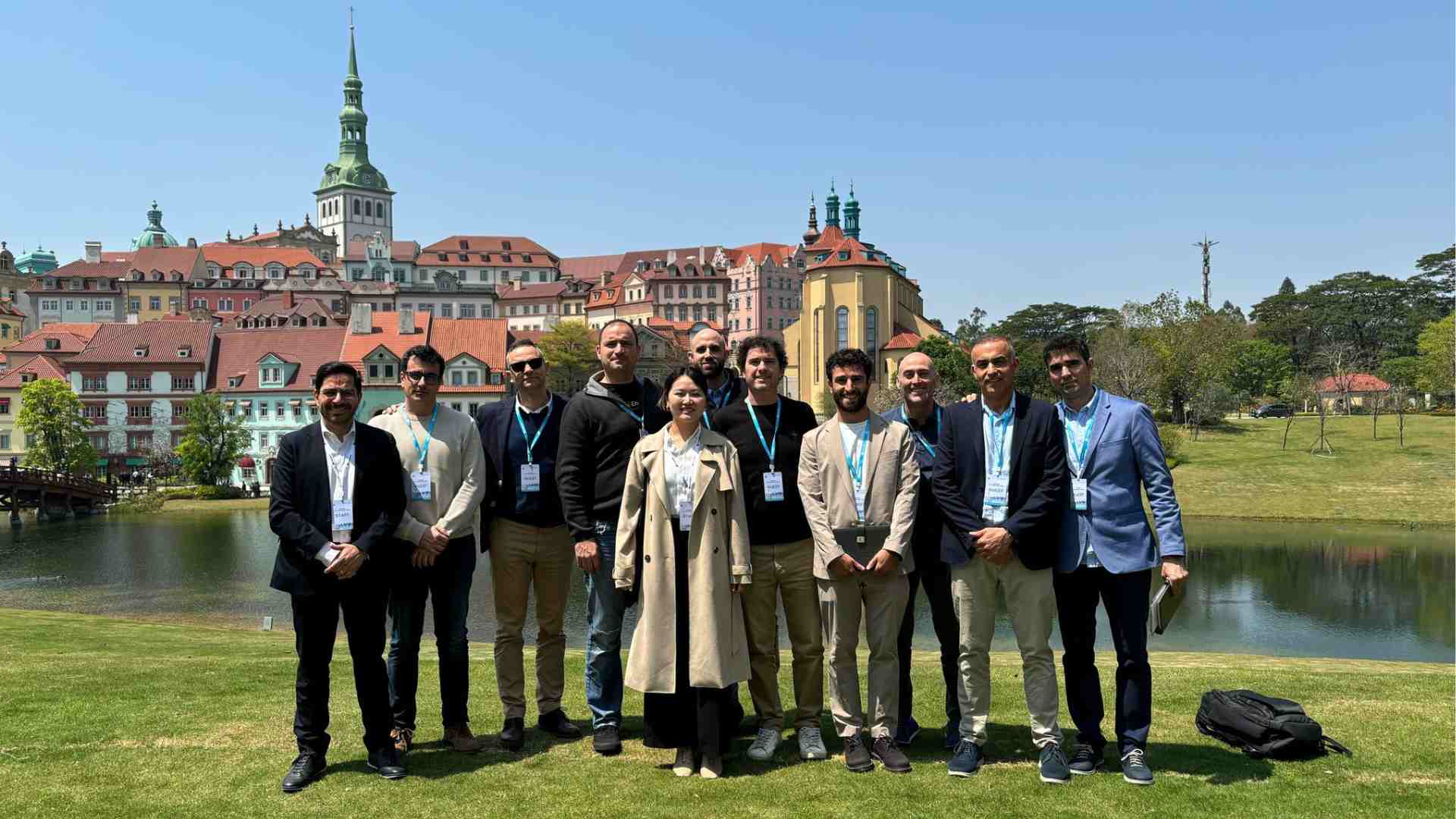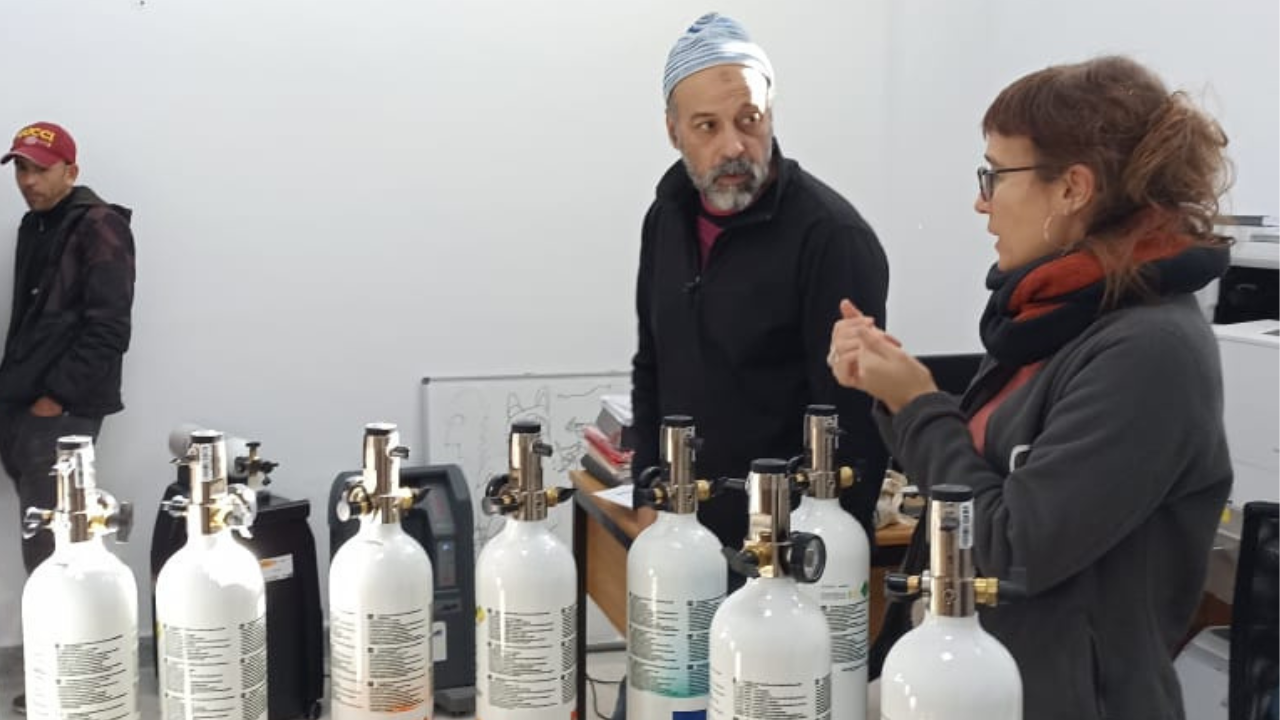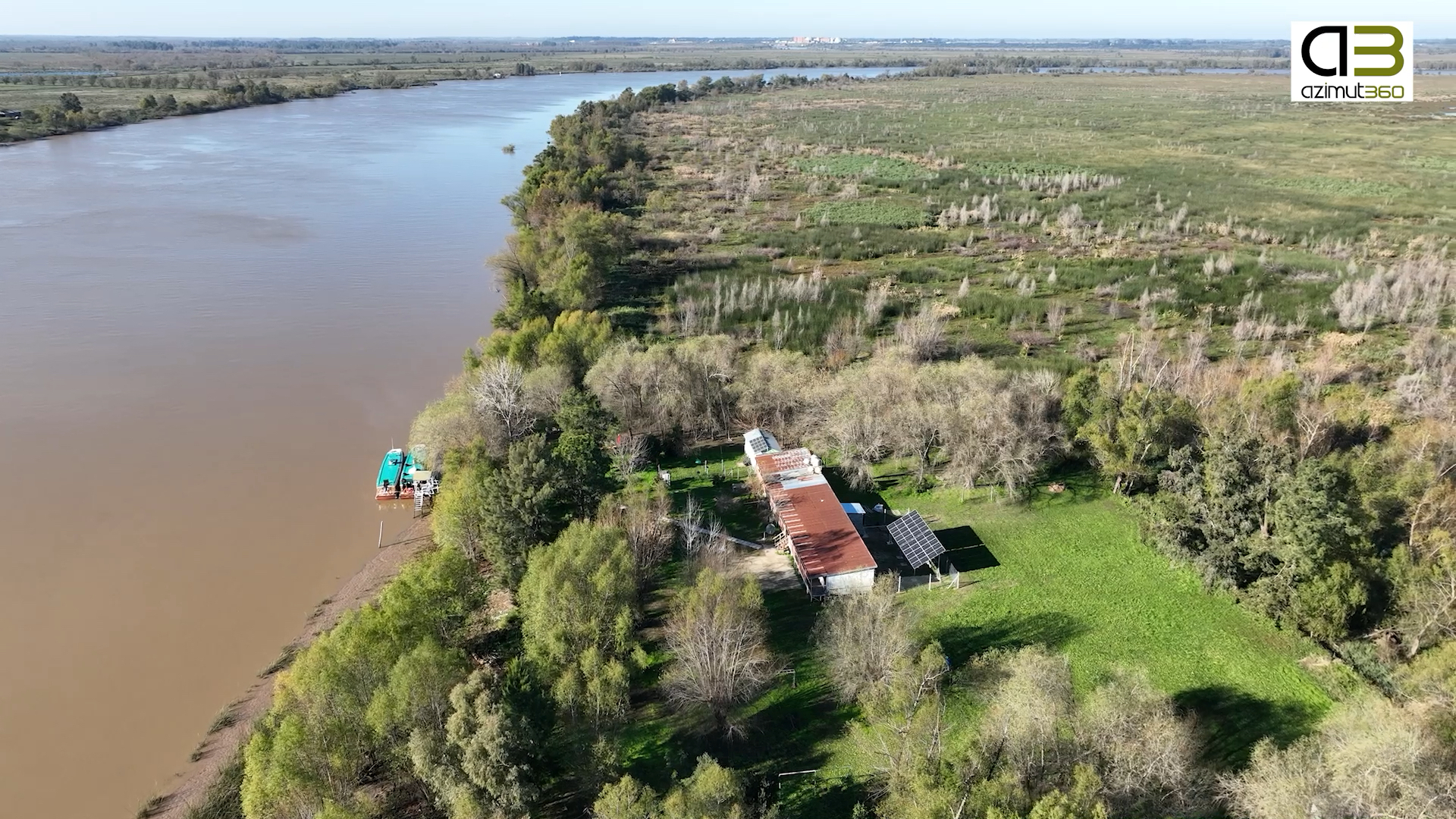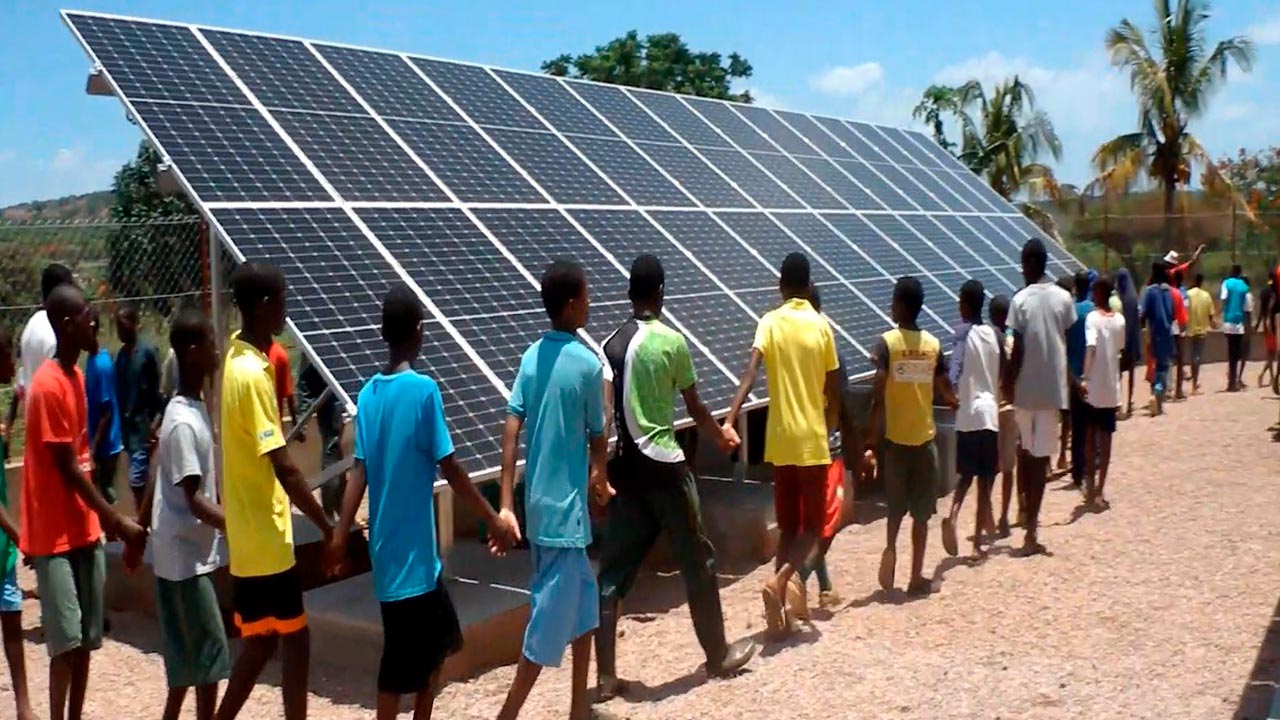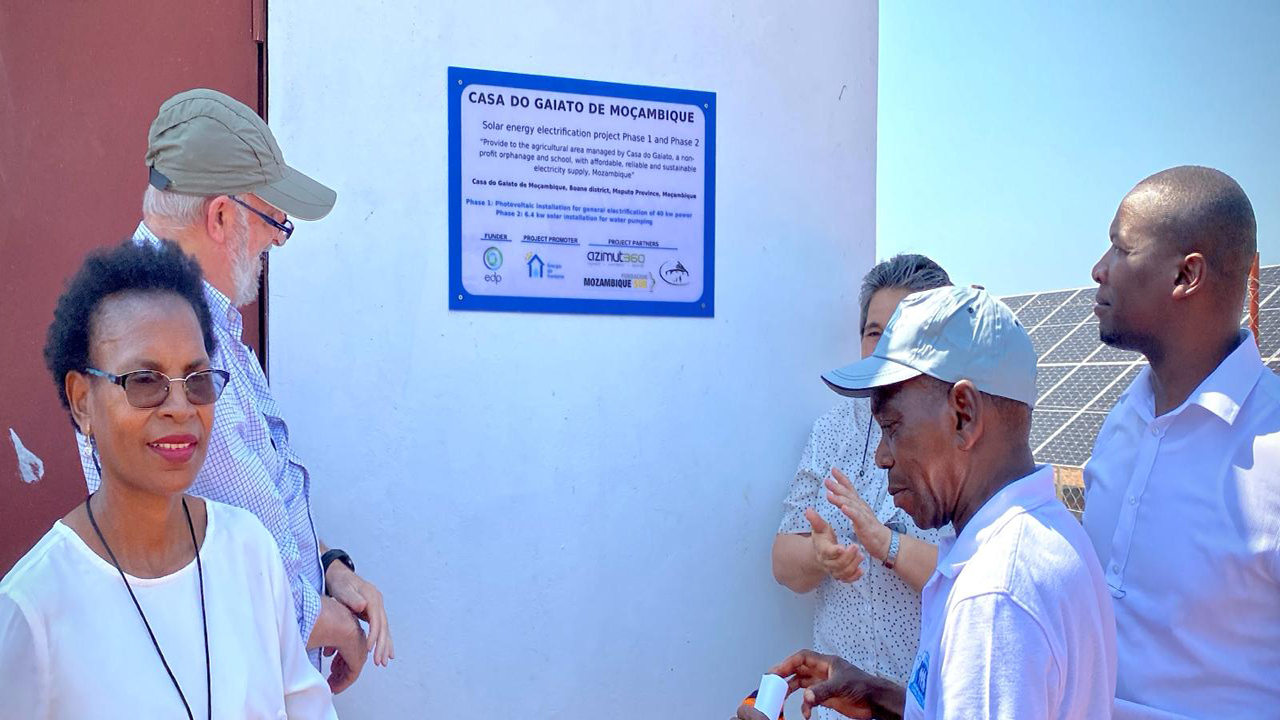Global Trends and Storage Technologies: Our Experience at the Huawei Installer Summit 2025
🕒 Reading time: 4 minutes
Global Trends and Storage Technologies: Our Experience at the Huawei Installer Summit 2025
On March 20, 21, and 22, Azimut 360 had the opportunity to participate in the second edition of the Huawei Global Installer Summit, an international event organized by Huawei at its headquarters in Shenzhen, China. This trip was made possible thanks to our distributor, Baywa r.e., who offered us the chance to attend this key event and gain first-hand insight into the latest trends and technological solutions from the Chinese brand.

Azimut was represented by Albert Calomarde, our Commercial Director, and Guillem Hernández, Engineer of the National Area. They had the chance to share experiences with other companies in the sector from across Spain and around the world. The summit included technical sessions, visits to research and development centers, and networking opportunities with other industry professionals.
One of the highlights of the event was receiving recognition from Huawei as a leading installer company—an honor that acknowledges our track record, the quality of our work, and our continued commitment to the brand’s technological solutions.

During our stay in China, we explored Huawei’s potential in the field of energy storage, its strong focus on research and development (R&D), and the latest innovations in its products and digital platforms. We visited operational facilities, innovation centers, and production lines, as well as product exhibitions with a strong emphasis on safety and efficiency features.
One of the most striking visits was to one of Huawei’s factories in the Shenzhen industrial complex. There, we witnessed first-hand how a battery module production line operates, equipped with cutting-edge technology to ensure the highest quality. Once manufactured, these modules undergo rigorous safety testing before being released to the market.

The experience was an intense and enriching immersion into the strategic direction of one of the sector’s global players. It allowed us to connect with professionals from different realities and contexts, exchange knowledge, and explore future opportunities. The event also featured success stories from installer companies around the world, as well as different approaches to large-scale battery deployment—one of the main challenges in the energy sector.
At Azimut 360, we want to thank Baywa r.e. for their trust and ongoing support, and the Huawei team for their hospitality and excellent organization throughout the entire trip.
Want to know more about how we use Huawei equipment in our projects?
Joan de Déu hospital complex. This project, carried out in close collaboration with Baywa r.e., involved the implementation of a highly efficient solar photovoltaic plant tailored to the needs of a healthcare environment. This partnership is a clear example of how we integrate top-tier technology to move towards a more sustainable, reliable energy model that prioritizes people’s well-being.
Ensuring Universal Access to Medical Oxygen
Reading time: 3 mins
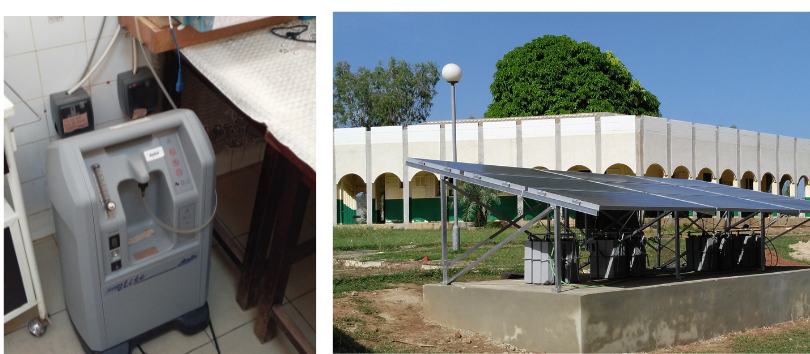
Ensuring Universal Access to Medical Oxygen: A Key Investment for Global Health
According to the latest report from The Lancet Global Health Commission on Medical Oxygen Security, more than 5 billion people (60% of the world’s population) do not have guaranteed access to safe and affordable medical oxygen. This is an often-overlooked issue, yet it causes hundreds of thousands of preventable deaths each year and affects millions of patients with critical medical needs.
Here are the key findings from the report:
- Extreme inequality persists. Low- and middle-income countries (LMICs) continue to be the most affected, with only 30% medical oxygen coverage for patients with acute needs.
- Additionally, the demand for medical oxygen continues to rise. Every year, 374 million patients require medical oxygen, particularly for respiratory diseases, surgeries, and intensive care.
- Healthcare infrastructure deficiencies must also be addressed. Only 45% of patients with hypoxemia receive oxygen in general hospitals in LMICs, while in primary healthcare centers, 93% experience shortages.
- One of the major issues is the insufficient use of pulse oximetry. Pulse oximetry is a non-invasive technique that measures blood oxygen levels using a fingertip device, enabling early detection of hypoxemia and ensuring appropriate medical care. Despite being available in some hospitals, it is only used in 19% of patients in general hospitals and 54% in tertiary hospitals.
- Pulse oximetry is essential for safe and affordable medical care and should be integrated into clinical protocols and healthcare training to ensure its proper use at all levels of care.
- The study highlights the urgent need for investment in the sector. Currently, an estimated $6.8 billion annually is required to ensure universal access to medical oxygen in low-resource countries.
Medical Oxygen as a Strategic Investment
The report emphasizes that ensuring access to medical oxygen is a highly cost-effective measure, comparable to childhood vaccination ($59 per DALY averted). This investment would accelerate progress toward 8 out of the 9 Sustainable Development Goals (SDGs) related to health and improve preparedness for future pandemics.
The Impact of Our Projects on Healthcare Training
To address this crisis, training healthcare personnel is essential. For this reason, one of the core pillars of our actions is capacity building. Through our projects:
- We train medical staff in the use of oxygen therapy and oxygen concentrators to ensure safe and efficient application.
- We implement training in pulse oximetry, improving the detection and response to hypoxemia in resource-limited settings.
By training healthcare workers, we aim to strengthen the sustainability of the healthcare system, equipping professionals with the tools and knowledge to mitigate oxygen shortages.
Case Study 1: Kotiakró Project, Côte d’Ivoire
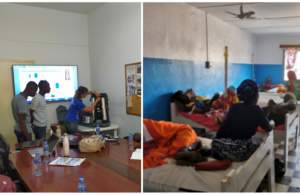
Through the project Ensuring the Right to Health in the Kotiakró Community, we are working to reduce shortages and improve access to essential healthcare services. This project includes training local healthcare staff in the proper use of oxygen concentrators and pulse oximetry, ensuring that critical patients receive adequate treatment.
As part of the project, a photovoltaic solar power system was installed to provide continuous electricity to oxygen concentrators 24/7, ensuring the availability of this life-saving medical treatment in the health center and maternity ward.
Case Study 2: Morocco Project – Ambulance Medicalization

In rural areas of Morocco, the lack of medical oxygen during patient transport poses a severe risk to critically ill patients. To address this issue, Azimut 360, in collaboration with the Chefchaouen Health Delegation and our local partner ADL, has developed a healthcare project to equip ambulances in the province with oxygen cylinders. These cylinders can be refilled locally at the Provincial Hospital once patients are transferred from rural health centers, preventing supply chain disruptions for remote locations.
Key Recommendations from The Lancet Global Health Report
Our engineer Mireia Gil contributed as an author to this study, from which we draw some key recommendations:
- Develop national plans to reduce the gap in access to medical oxygen.
- Mobilize international funding and increase collaboration with the private sector.
- Include pulse oximetry and medical oxygen as essential indicators in global healthcare databases.
- Promote innovative solutions in sustainable healthcare technology and infrastructure.
Access to medical oxygen is a matter of global health equity. With a well-defined strategy and political commitment, it is possible to ensure that no patient dies due to the lack of this essential resource. Now is the time to act.
A boost for rural schools in Buenos Aires Province with solar energy
Reading time: 2 min
A boost for rural schools in Buenos Aires Province with solar energy
With climate change being one of the greatest threats of our time, the adoption of renewable energy sources is becoming increasingly essential. In this context, Buenos Aires Province in Argentina has taken the lead with an innovative project that promises to make a significant impact.
The Ministry of the Environment has approved an initiative involving the installation of solar energy systems in 22 rural schools. This project represents a major step towards a more sustainable energy transition, providing access to clean and affordable energy sources in areas with limited resources, also addressing energy vulnerability.
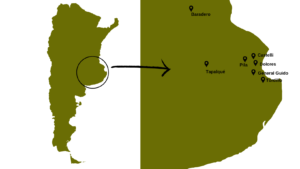
Behind this project lies extensive technical work carried out by the Provincial Directorate of Ecological Transition. This entity has made a significant effort to identify schools that either lack access to an electrical grid or require modernization and maintenance, highlighting the need to improve energy access, particularly in rural schools.
Our engineering team, including experts such as Chloé Coral and Jordi Monge, has played a crucial role in this process. During their mission in Buenos Aires, they visited the area to assess the specific electrical needs of each school, ensuring that the adopted solution is the most suitable for each case.
The first phase of this initiative involved a detailed evaluation of the electrical systems in each school to determine the necessary actions. Many of these schools already had photovoltaic panels, but the assessment revealed a clear lack of maintenance and the poor functioning of most solar installations.
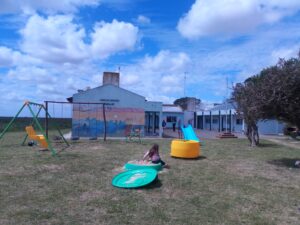
School No. 14 in Pila
Subsequently, in a second phase, the necessary installations and repairs were carried out to ensure a proper electrical system based on clean energy use. This effort will not only improve the quality of education in these schools but will also contribute to a more sustainable future for the community as a whole.
This initiative also highlights the importance of inclusive environmentalism, a concept that seeks to combine environmental protection with social and economic equity. It is a model that could be replicated in other regions and countries, setting an important precedent in the fight against climate change and social inequality.
This approach is particularly relevant for rural schools, which, due to their remote locations away from urban areas, face unique and significant challenges.
The rural schools in Buenos Aires Province, often situated in remote and difficult-to-access areas, face numerous challenges beyond education itself. In many cases, logistical difficulties such as poor road conditions or long distances make student transportation a challenge, especially during bad weather. These conditions can limit regular access to education for many children, increasing inequality in educational opportunities.
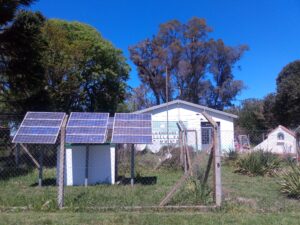 One of the most significant challenges is the lack of basic infrastructure, including access to quality energy.
One of the most significant challenges is the lack of basic infrastructure, including access to quality energy.
This deficiency not only affects the school’s ability to provide quality education (for example, through adequate lighting or the use of educational technologies) but also impacts the daily lives and well-being of students and staff.
For this reason, we believe that the renovation of the existing solar installations will represent a qualitative leap in energy generation, which will, in turn, improve the quality of these educational centers.
Discover more projects like this at https://azimut360.coop/projectes-energia-solar/.
Completion of the Second Phase of the Solar Energy Project at the Casa do Gaiato Farm in Mozambique
Completion of the Second Phase of the Solar Energy Project at the Casa do Gaiato Farm in Mozambique
The solar energy project for the Fazenda de Casa do Gaiato area has culminated in an on-ground photovoltaic installation that provides the agricultural area managed by the host house with an affordable, reliable and sustainable electricity supply. It is now fully operational.
The main objective of the project was to solve the problems arising from the grid electricity supply, which was of low quality, expensive and unreliable. The photovoltaic solar installation now powers the water pumping system, the chicken coop and the lighting of the agricultural area, significantly reducing the organization’s electricity bill and allowing reinvestment in new activities and projects for the benefit of the community.
Casa do Gaiato, located on the outskirts of the village of Massaca, in the district of Boane, Maputo province, has been a pillar of social support for the surrounding rural communities for more than 30 years. This organisation provides food, healthcare, education and vocational support to children without families, as well as primary and secondary education.
La instal·lació del sistema solar fotovoltaic ha estat realitzada amb èxit. Podeu consultar les dades a la fitxa de projecte. (link) Això ha permès a Casa do Gaiato ser més autosuficient pel que fa al subministrament elèctric i estalviar diners per finançar altres activitats de la fazenda.
Beneficis Assolits
- Estalvi Econòmic: Hem aconseguit una reducció significativa dels costos d’electricitat, permetent un ràpid retorn de la inversió.
- Sostenibilitat Ambiental: S’ha reduït l’ús de combustibles fòssils i les emissions de CO2.
- Millora de la Productivitat: Les activitats agrícoles són ara més rendibles gràcies a una font d’energia fiable.
- Impacte Social: Les condicions de vida dels nens/es, treballadors/es i famílies associades a Casa do Gaiato esperem que millorin notablement.
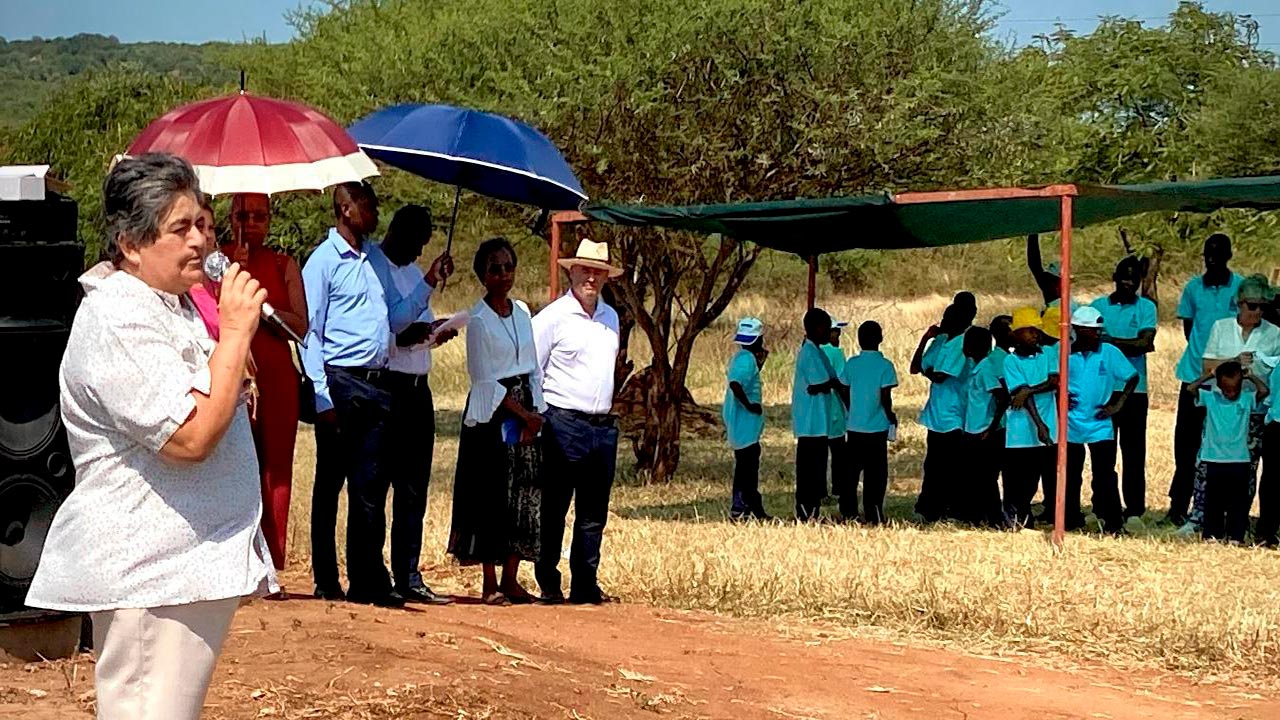
In addition to the installation of the system, practical training has been provided to Casa do Gaiato workers to ensure the long-term sustainability of the system. With these trainings we hope to increase the local capacity of the maintenance of the facilities in order to optimize the energy produced.
We are very satisfied with the results of this second phase of the project. Casa do Gaiato can now carry out all its agricultural and economic activities without interruptions or large expenditures on fossil fuels. This success not only benefits the organization, but also contributes to a more sustainable and equitable future for the entire community.
For this reason, we want to thank all those who have participated and collaborated in this project. To our team formed by Chloé for the coordination and Jordi who is already one more “gaiato”!


Azimut World: cooperation and development area
